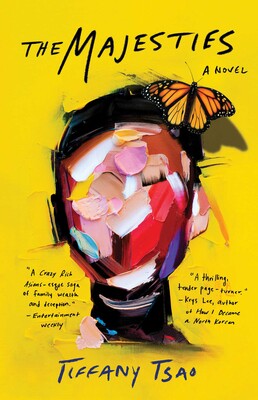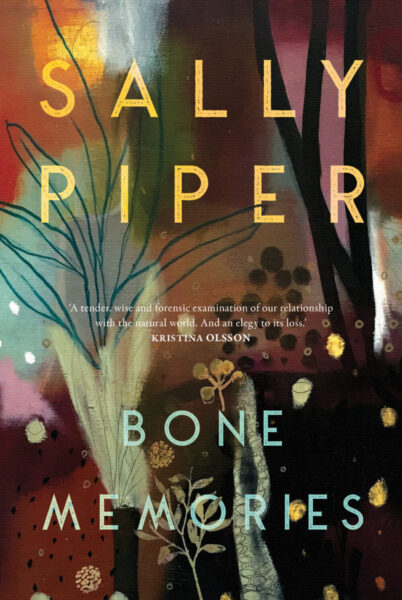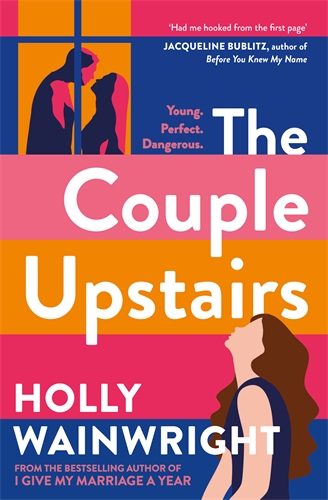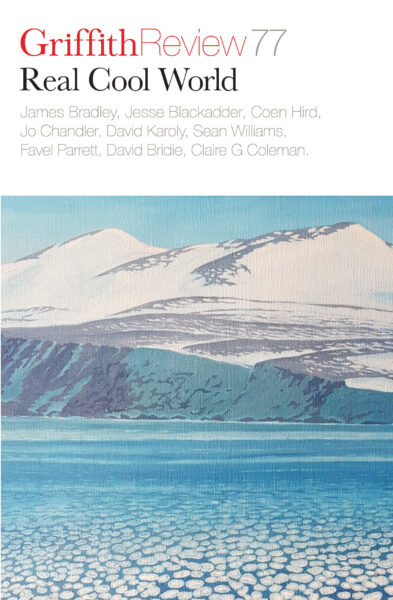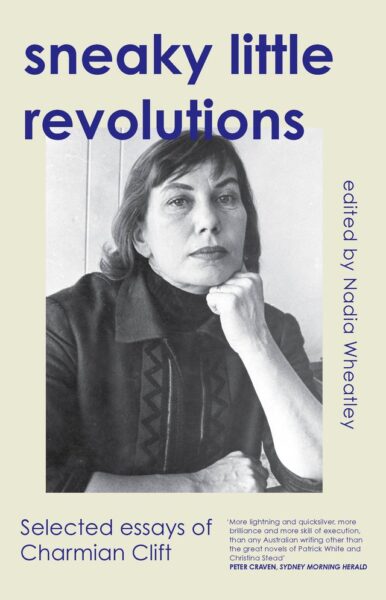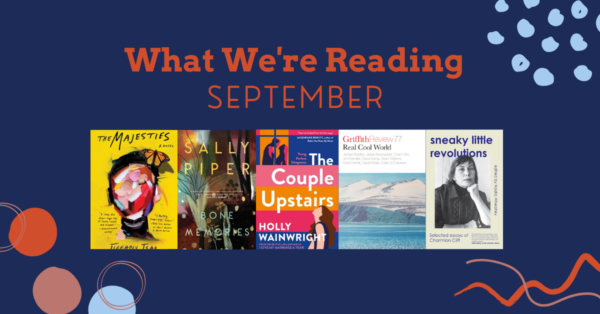The Majesties by Tiffany Tsao
Julia Tsalis, Program Director
Tiffany Tsao’s The Majesties (originally published in Australia as Under Your Wings) is a book full of contradictions: it’s a thriller that gives away the crime in the opening paragraph (the entire extended family has been poisoned at a wedding); it’s a fast-paced entertaining read which deeply engages with questions of racial stereotyping, class and social political issues; and it could be classified as literary fiction but also has elements of science fiction and fantasy while conforming to neither genre. With all these threads, and seeming contradictions, Tsao brings together a brilliantly written, multi-faceted, genetically modified, gem of a book that I highly recommend reading.
Tiffany Tsao’s article ‘Monsters Made, not Begotten,’ about her personal history also provides fantastic insight into the social and political environment that informs the book.
Bone Memories by Sally Piper
Rowena Tuziak, Membership & Operations Manager
Sally Piper’s Bone Memories is a contemplative and immersive novel about grief and connection: to others, to the body, and significantly to place. Sixteen years after the unsolved murder of Jess in a Brisbane bushland, her family are living in its shadow. Like a ringbarked tree, her mother Billie is marked from that moment, trapped in an emotional stasis while the murder remains unsolved. Billie’s grandson, Daniel, himself a witness to his mother’s death at just three years of age, now 19, imagines a life beyond his trauma. Dogged Billie keeps drawing him back, forcing him to relive the incident hoping his memories hold the key to unmasking the perpetrator. Meanwhile, Daniel’s stepmother, Carla, wants to sell the home the others once shared with Jess, and struggles to understand why they can’t all just move on.
Bone Memories is an authentic portrayal of family dynamics, intensified by insurmountable grief. It also examines the way violent crime is sensationalised and its victims dehumanised by both the media and the public. This beautifully written work demonstrates Piper’s intimate knowledge and love of nature, and challenges the reader to reflect on our relationship to place, our impact on the environment, and its impact on us.
The Couple Upstairs by Holly Wainwright
Amy Lovat, Professional Development Officer
Among Ancient Moss Forests by Sharon Robinson
Isaac Wilcox, Administration and Digital Services Officer
This is an essay about studying moss. Did your heart do a backflip?
Well, it should, because this essay is incredible. It’s got scientists, military aircraft, cute penguins and offers a glimpse of the edge of human knowledge and endurance. It made me want to drop everything and go to the Antarctic and study moss. And that’s just what Sharon Robinson and her colleague Jane Wasley have done for twenty-five years.
We hear about the expeditions they make in detail. It’s everything you might imagine, the community on the research station is warm and supportive of each other, the physical conditions are tough and extreme, the work engrossing and time consuming. Interestingly the biggest endurance is one that may not have surprised a Shackleton or Amundsen, bureaucracy and funding. It’s been achingly difficult to conduct twenty-five years of consistent research as funding streams dry up, dry up and disappear like the moss and the ice.
I’d not until now reflected on how much of what we feel about the Antarctic comes from writing, and from the writings of studious and observant people. Diligent people, supporting one another and recognising the importance of collaboration and cohesion. A perfect community. I’d also not reflected on how in Antarctic writing, atmospheric conditions and human action are so closely intertwined, thrown into extreme relief. One is impossible without the other.
Sneaky Little Revolutions, edited by Nadia Wheatley
Keira Baker, Project and Communications Officer
Sneaky Little Revolutions is a selection of Charmian Clift’s weekly essays in the Melbourne Herald and Sydney Morning Herald between 1964 and 1969, collated by her biographer Nadia Wheatley. The essays range from the personal to the political – Clift was initially enlisted to write a column in the lowly ‘women’s pages.’ As her audience grew, Clift’s social commentary and political dissent was made palatable by sandwiching it between sewing machine ads and casserole recipes.
I first encountered Clift through her travel memoirs, seduced by the romance of her life with George Johnston on the Greek islands of Kalymnos and Hydra. In these essays, written after Clift’s return to Australia, Clift describes herself as a ‘home-grown migrant.’ There’s a sense of outsiderness, a distance that allows her to dissect changes in post-war Australia. In these ‘sneaky little revolutions,’ she discusses issues such as the Vietnam war, conscription, women’s rights, abortion, indigenous rights, aging, motherhood, and the Menzies government. Though they’re not all political – she also writes of the ‘joys of a city’, ‘on being unable to write an article,’ or an ode to the joy of a council pick-up. She’s a writer who writes for the sheer pleasure of it.
Clift’s essays were also significant in how they provided a space for collective discourse. She received hundreds of letters from Australian women, and often quoted their responses in her column. In this way the book is an interesting time capsule to a Sydney on the brink of feminism and a Whitlam government. Sadly, Clift died in 1969, and didn’t get to see some of the liberations she had long fought for.
I hope this new edition will allow current generations to discover Clift’s work, and that they’ll enjoy it as much as I did!
Sneaky Little Revolutions, UNSW Press.
More from Writing NSW
Check out our full range of in-person writing courses in Sydney, our online writing courses and our feedback programs to see how we can help you on your writing journey. Find out about our grants and prizes, as well as writing groups across NSW, and sign up to our weekly newsletter for writing events, opportunities and giveaways.

